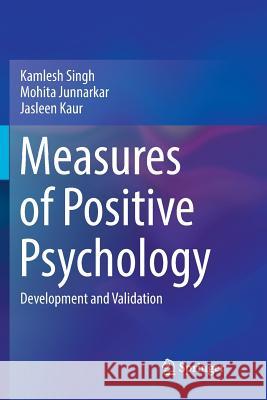Measures of Positive Psychology: Development and Validation » książka
topmenu
Measures of Positive Psychology: Development and Validation
ISBN-13: 9788132238720 / Angielski / Miękka / 2018 / 215 str.
Kategorie:
Kategorie BISAC:
Wydawca:
Springer
Język:
Angielski
ISBN-13:
9788132238720
Rok wydania:
2018
Wydanie:
Softcover Repri
Ilość stron:
215
Waga:
0.32 kg
Wymiary:
23.39 x 15.6 x 1.22
Oprawa:
Miękka
Wolumenów:
01
Dodatkowe informacje:
Wydanie ilustrowane











